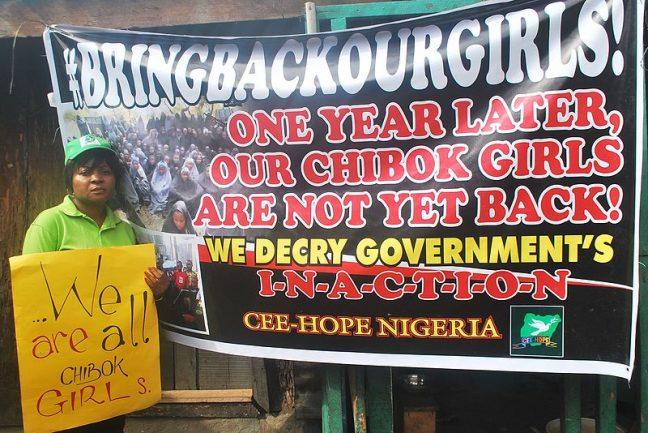Researchers at the University of Wisconsin recently launched a two-year study to investigate women’s role in peacemaking in certain African countries after times of conflict.
From ongoing civil war in Somalia to continued attacks in northern Nigeria, many countries in Africa have been plagued with unrest. In its three years of existence, South Sudan has been in the midst of a civil war and is now “on the brink” of genocide, according to TIME Magazine.
Some UW researchers think having women involved in peacemaking efforts could be a key to stability in these war stricken countries.
UW’s Center for Research on Gender and Women is leading the project, which started in July. The center is partnering with other institutions in a consortium that includes the Isis-Women’s International Cross-Cultural Exchange, based in Uganda, and the Norwegian Chr. Michelsen Institute, Aili Tripp, a UW political science and gender and women’s studies professor, said.
The Carnegie Corporation of New York and the Norwegian Ministry of Foreign Affairs have provided $961,600 in support of the project.
Nine researchers are working on the project in Somalia, Algeria, Nigeria, South Sudan and Sudan. These countries are dealing with detrimental conflicts and with Islamist extremism, Tripp said.
Walker: ‘The state of Wisconsin will not accept new Syrian refugees’
They have been studying how women’s involvement in behind-the-scenes informal peacemaking contributes to long-term solutions.
If more women were included in formal peace talks, the researchers believe the persistent unrest plaguing certain regions in Africa could be solved better. Tripp said women have their “ear to the ground” and know a lot about local situations, meaning they should be consulted.
Tripp said not only are women targets of extremist groups, like the Islamist group Boko Haram, but they are also rarely included in peace talks after war. When half of the population is excluded from peace talks, there is a greater likelihood that conflict will arise again in the near future.
Tripp said the study will look at the cost of women’s exclusion and will determine potential opportunities for women to be included in peace talks and possible benefits of their involvement.
“There are only a handful of [women] that make it into the peace talks and often just as an observer, and very few get into the actual representation,” Tripp said.
Though very few women are actually represented during peace negotiations, female activists are often deeply involved in other areas of the community such as informal talks with militia, pushing for formal peace talks, negotiating the release of kidnapped community members or advocating for peaceful elections.
Tripp said scholars started to recognize the benefits of having women involved in peace making and other political decisions by observing post-war negotiations in which women were involved.
The countries that have come out of major conflict tend to be the ones that have passed the most legislation around women’s rights and the highest representation of women in government, Tripp said.
For example, Rwanda women currently hold 64 percent of parliament seats — the highest in the world, Tripp said. More women started to become part of parliament during the years following the Rwandan genocide in 1994.
After the genocide, the Rwandan government made an effort to open more seats of parliament to more people in the community, including women, Tripp said. Today in Rwanda, conflict is over, but there are still tensions.
Another example of how women can help push toward peace is in Somalia. In Somali society, political power is divided along clan lines, and women have to fight to be included, Ladan Affi, assistant professor in the Department of Interdisciplinary Studies at Zayed University in Dubai, said in an email to The Badger Herald.
As a part of the project, Affi, who has a Ph.D. from UW, is currently conducting research in Somalia on women’s inclusion in governance. Affi said each of the Somali clans are “a patriarchal institution” that constantly question women’s loyalty when they marry members of a rival clan.
Dane County Board stands in solidarity with Muslim community
But because these women belong to multiple clans, they are in a position where they can connect two clans and mediate peace talks. Affi said some women already do this by carrying messages between “warring communities.” This is just one way women can be instrumental in pushing toward peace, Affi said.
Both Affi and Tripp emphasized that though women are often key targets of violence, the project is not meant to portray women as victims but as active participants in resisting and preventing violence.
“The more you have civil society actively involved in peace agreements and peace negotiations, they are more likely to stick,” Tripp said.














